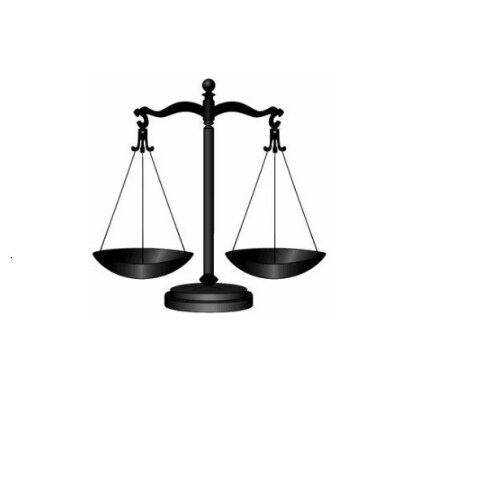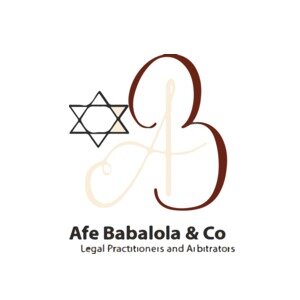Best Divorce & Separation Lawyers in Port Harcourt
Share your needs with us, get contacted by law firms.
Free. Takes 2 min.
Free Guide to Hiring a Family Lawyer
List of the best lawyers in Port Harcourt, Nigeria
Nigeria Divorce & Separation Legal Questions answered by Lawyers
Browse our 29 legal questions about Divorce & Separation in Nigeria and read the lawyer answers, or ask your own questions for free.
- Can a woman seek divorce from her husband if he cheated and got another lady to bear a child for him?
- The marriage happened in 2019. No court wedding, just a church and a traditional wedding. Also, no child throughout the wedding period. Husband got another lady pregnant and bore a child for him while still married. Is this enough grounds to dissolve the marriage, and what's the best approach if... Read more →
-
Lawyer answer by Papireddy Associates
Yes, a woman can seek dissolution of her marriage if her husband cheated and had a child with another woman while still married, as adultery is a recognized ground for divorce under Indian law, including for marriages performed traditionally or...
Read full answer - Is 2 to 3 months enough for a divorce to process
- Can I file for a divorce on grounds of fertility negligence, and my husband says he doesn't want to have children with me? Bullying by his brother? Accusations of his brother's child dying because of my prayers? Saying he was lured into marrying me?
-
Lawyer answer by Guidance Law Firm
You can successfully sustain a divorce suit on the grounds you stated. However, 2 to 3 months is not enough for the divorce suit to be concluded in court. It will take at least six months for the divorce to...
Read full answer - How do I go about filling for a divorce
- It is obvious that the marriage is no longer working and both of us are exhausted trying to make it work. How do we go about it?
-
Lawyer answer by Solomon & Co.
Filing for divorce involves specific procedures depending on your personal law - mutual consent divorces are quicker, while contested cases require detailed grounds, evidence, and court hearings. The process includes filing a petition, possible counseling/mediation, and a final decree by...
Read full answer
About Divorce & Separation Law in Port Harcourt, Nigeria
Divorce & Separation in Port Harcourt, Nigeria refers to the legal process through which marriages or partnerships are legally terminated or spouses choose to live apart. It is essential to understand the laws and regulations that govern divorce and separation in Port Harcourt to protect your rights and navigate the process effectively.
Why You May Need a Lawyer
Hiring a lawyer experienced in divorce and separation law can be crucial in various situations, including:
- Complicated Financial Matters: If you have significant assets, debts, or complex financial situations, a lawyer can help ensure a fair division during divorce or separation.
- Custody Disputes: When child custody arrangements become contested or when there are disagreements about visitation rights, a lawyer can advocate for your preferred outcomes while protecting the best interests of the child.
- Spousal Support: If you believe you are entitled to spousal support or facing unreasonable demands, a lawyer can guide you through the legal process of determining fair spousal maintenance.
- Domestic Violence: If you or your children are victims of domestic violence or abusive behavior, a lawyer can help obtain protective orders and ensure your safety during the divorce or separation process.
- Legal Expertise: Even in amicable divorces or separations, having a lawyer's guidance and expertise can ensure that all legal requirements are met, preventing future disputes or complications.
Local Laws Overview
In Port Harcourt, Nigeria, the Matrimonial Causes Act governs divorce and separation matters. The key aspects of local laws relevant to divorce and separation include:
- Grounds for Divorce: The Matrimonial Causes Act allows divorce on various grounds, including adultery, unreasonable behavior, desertion, separation for at least two years with consent, and separation for at least three years without consent.
- Division of Assets: Nigerian law generally follows the principle of equitable distribution, meaning that assets acquired during the marriage are divided fairly based on each spouse's contributions and needs.
- Child Custody: When determining child custody, the court prioritizes the best interests of the child, considering factors such as the child's physical and emotional well-being, educational needs, and the parents' ability to provide care.
- Spousal Support: Spousal support may be awarded based on factors such as the duration of the marriage, the income disparity between spouses, and the standard of living during the marriage.
- Mediation: Before resorting to court proceedings, couples are encouraged to participate in mediation or alternative dispute resolution methods to settle their differences amicably.
Frequently Asked Questions
1. Can I apply for a divorce immediately after marriage?
No, you cannot apply for a divorce immediately after marriage. You must be married for at least one year before filing for divorce under Nigerian law.
2. How long does the divorce process take?
The duration of the divorce process can vary depending on various factors such as the court's caseload, the complexity of the case, and whether both parties agree on the terms of the divorce. It usually takes several months to finalize a divorce in Port Harcourt.
3. Can I receive custody of my child as a father?
Yes, Nigerian law recognizes the rights of fathers to seek custody of their children. The court determines custody based on the best interests of the child, considering factors such as the child's age, preferences, and the parent's ability to provide a suitable environment.
4. Do I have to go to court for a divorce?
Yes, divorce cases in Port Harcourt generally require court proceedings. However, alternative methods like mediation and negotiation can be explored to reach an amicable settlement without prolonged courtroom battles.
5. Can I change the terms of child support or alimony after the divorce?
In certain circumstances, you may be able to modify child support or alimony agreements after the divorce. However, any modifications must be requested through the court and require a substantial change in circumstances.
Additional Resources
- Nigerian Bar Association - https://www.nigerianbar.org.ng
- Legal Aid Council, Port Harcourt - https://legalaidcouncil.gov.ng
- Ministry of Justice, Port Harcourt - https://www.riversmoj.gov.ng
Next Steps
If you need legal assistance in divorce and separation matters, it is advisable to consult with a reputable family lawyer in Port Harcourt, Nigeria. They can guide you through the process, explain your rights, and help you reach a fair resolution. Contact the recommended resources mentioned above for further information or to seek legal advice tailored to your specific situation.
Lawzana helps you find the best lawyers and law firms in Port Harcourt through a curated and pre-screened list of qualified legal professionals. Our platform offers rankings and detailed profiles of attorneys and law firms, allowing you to compare based on practice areas, including Divorce & Separation, experience, and client feedback.
Each profile includes a description of the firm's areas of practice, client reviews, team members and partners, year of establishment, spoken languages, office locations, contact information, social media presence, and any published articles or resources. Most firms on our platform speak English and are experienced in both local and international legal matters.
Get a quote from top-rated law firms in Port Harcourt, Nigeria — quickly, securely, and without unnecessary hassle.
Disclaimer:
The information provided on this page is for general informational purposes only and does not constitute legal advice. While we strive to ensure the accuracy and relevance of the content, legal information may change over time, and interpretations of the law can vary. You should always consult with a qualified legal professional for advice specific to your situation.
We disclaim all liability for actions taken or not taken based on the content of this page. If you believe any information is incorrect or outdated, please contact us, and we will review and update it where appropriate.













